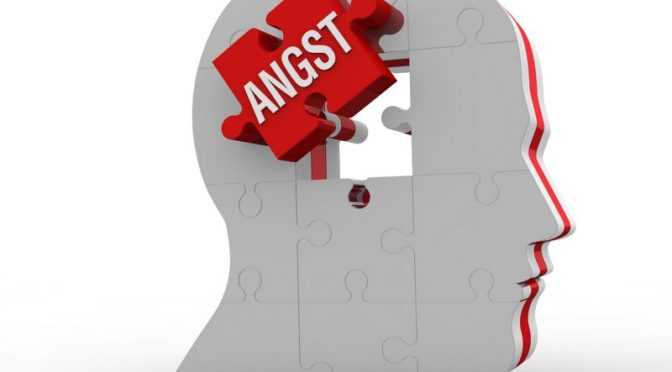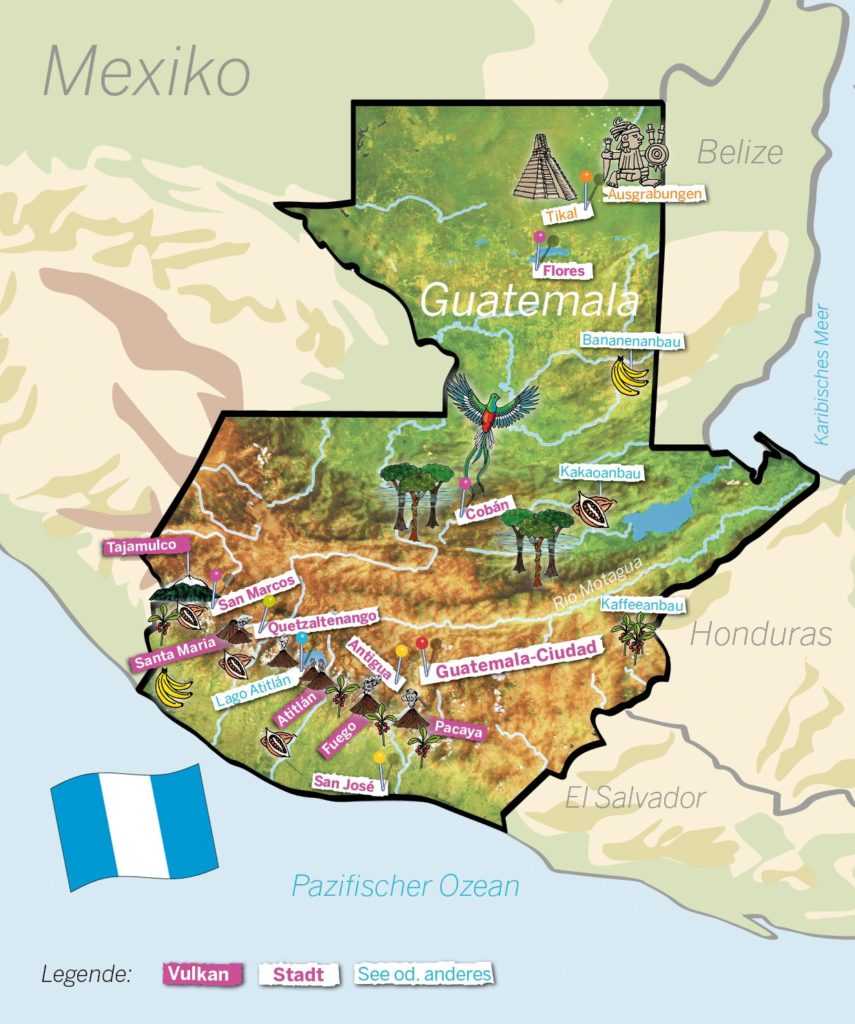Understand fear

Understand fear –
Everything about fears of A-Z
What is “fear”? – understand fears …
Fear is a basic feeling that all people know. In situations that we consider dangerous, threatening, or uncontrollable, we feel anxiety. The definition and expression of fears has many faces and expresses itself very differently.
There are sudden strong ones anxiety attacks, when we are exposed to imminent danger. Here fears take on a protective function, as it makes us more attentive and responsive. With this fear, our body usually reacts violently with tachycardia, tremors and anxiety. When the danger is over, these symptoms quickly pass.
But there are also those softly, creeping fear, which can become a constant companion and which has its origin (or consequences) in physical and mental illnesses. This fear follows us in everyday life, we will not get rid of it so fast, it will burden you.
For Nobody needs to be ashamed of feelings of fear, they are simply a reaction of our body to cope with certain situations.
Definition anxiety / anxiety disorder
Anxiety involves many feelings, e.g. Worrying in everyday life, inner unrest from certain situations, fear of illness, loss of a loved one, fear, panic, even deathly fear. To be afraid of something is quite normal and is part of our everyday life. Fear synonymous with many different anxiety, some of which are briefly presented below. It is important to know that almost all examples are available in varying degrees; from simple malaise to pathological anxiety disorders / anxiety disorders with a phobic character.
Social fears
The social anxiety is a widespread one anxiety disorder, which has manifold effects on our thoughts and actions. People who suffer from social anxiety often feel different towards others inferior, they are afraid to shut up disgrace, anxiety, not good enough. They behave quietly, talk little (see also Speech of Speech) and avoid conflicts. So they risk being laughed out, rejected or criticized out of the way.
People who have social anxieties often have few contacts and reject invitations. Because of your Fear of rejection lead a very limited life. People with social anxiety are often tense, cramped and blocked. Severe forms of social anxiety disorder (social phobia) can lead to total social isolation and severe depression, often combined with addictive behaviors.
Other anxiety disorders
Another anxiety disorder is the Fear of crowds. The victims avoid public, high-traffic places, e.g. a full department store, a concert or a crowded subway. In this anxiety disorder feel the suffering of a kind loss of control exposed. They fear that they will not be able to escape fast enough in the event of a panic attack. To cope with these fears, many resort to avoidance behavior, i. all heaps of people are shunned. The fear of crowds may originate, for example. have a bad experience during a major event. As with any anxiety disorder, there are also different degrees of fears. While some feel only slight feelings of anxiety, others panic so badly that they are afraid to leave the house. In their own home, they feel safe, the familiar environment gives them strength.
Another anxiety disorder that agoraphobia, is common in everyday life. The so-called claustrophobic anxiety occurs in elevators, buses and trains, in department stores, cinemas or other confined spaces. Those concerned are afraid of losing control or not being able to escape from a particular situation. They develop strategies to avoid their scary places. In people with claustrophobia fear is not a signpost for an emerging danger, here is the fear itself in the foreground, a real danger does not exist.
Fear of fear
Many sufferers who suffer from anxiety disorders develop a fear of anxiety during their lifetime. Even the thought of a particular event scares them. They wonder if they can expose themselves to an anxiety situation, whether they will eventually fall over, faint or something similar. The confidence in her body is gone, fear determines her life. It creates a veritable fear spiral. They decide against leaving the house, preferring to stay in their familiar surroundings.
People who are always worried, whose thoughts are centered only on potential dangers and threats, jumping from one fear to the next, getting information on the Internet about illness, only to become even more scared afterwards, have one generalized anxiety disorder developed. You have fears of almost everything; Here, urgent help is recommended.
Loss anxiety, attachment anxiety and relationship anxiety
fear of loss There are many faces, there is fear in relationships, such as the fear of losing one’s partner, fears for the family, the workplace and even fear of the lack of material security. Loss fears are fears that go beyond the normal level. Often, such fears arise as a result of trauma from past loss experiences, e.g. had to go through as a child. This can be about the separation of the parents or the death of a loved one. Even the loss of a job or a very good friendship can quickly become a strong problem in the sense of an anxiety disorder for many.
People with such fears are prone to over-clinging, for example, clinging to no-good-to-them friendships or relationships, exploiting them just to avoid the loss.
The counterpart to the fear of loss is the Commitment Issues. What distinguishes these? On the one hand, is the fear of deep feelings, people long with one Attachment disorder on the other hand, closeness and love. Those affected do not like to talk about feelings, do not let anyone get at them. They are afraid to commit, e.g. to decide on joint future plans. They fluctuate between emotional closeness and retreat, thus sometimes appear emotionally cold to others. Causes of the disorder here are often fear of disappointment, but also of the loss of independence and personal freedom. They have difficulty taking responsibility for others.
Between the Commitment Issues and the fear of relationships There are many parallels (see attachment disorder). Fear of closeness, fear of giving up space, fear of constriction. Many afflicted with fear of relationship have never had a relationship, with them the fears associated with it are very pronounced. Indulging in great emotions is scary to her.
Fear of physical closeness
The Fear of sex can vary in severity, up to the complete rejection of intimacy. Here it must first be clarified whether the fears go beyond the normal measure. According to Sigmund Freud hangs extreme sexual anxiety mostly associated with early childhood experiences, e.g. the involuntary view of the parental bodily union. Parents who deliberately lived out their sexuality in front of their young children may have caused them severe sexual disorders. Another trigger can be an anti-body sexual morality of the parents, such as the equation of intimacy with sin. Here the children grow up with completely wrong moral concepts and later have problems to allow sexuality at all. Traumatized experiences such as physical abuse and rape also lead to fear of sex. For treatment, various forms of therapy are available, such as one Talk therapy, a behavior therapy or even an applied one depth psychology, where in the depths of the subconscious for possible causes is researched.
In connection with sexuality, there is still the Afraid of the first time. This fear is due to inexperience and usually includes the fear of defloration and the associated pain in young women. Corresponding fears of the first time are a normal reaction to a new experience. Here is usually already a conversation with the partner or a good friend.
scared of spiders
The scared of spiders, the arachnophobia (also: arachnophobia ) causes anxiety attacks in some people. But the sight from a safe distance is enough to trigger violent body reactions. The fear reaction is considered inappropriate and exaggerated because the real danger is not real. Although the sufferers know that, their fear is as present as if they were actually in Bedrohnis. There is no such thing as a correct explanation of the fear of spiders. One theory is that we respond to everything that crawls and crawls with horror, disgust or even panic. This phobia can be treated very well with the confrontation therapy. In the course of treatment, the victims are first confronted with pictures and films of spiders and later exposed to real spiders. If they can endure the touch of a spider at the end of the treatment, their phobia is considered cured.
Fear of heights and fear of flying
The fear of heights, also acrophobia called, is widely used. Symptoms of anxiety such as mild dizziness, severe tension, tremors or palpitations are noticeable when the affected persons are suffering from climb an observation tower, cross a bridge or stand at a precipice. If the fear of heights is particularly concise, the rise of a ladder is enough to trigger palpitations. With acrophobia you can arrange yourself well, lead a normal life. Anyone who feels too restricted in their life or has to be fit for the job has the opportunity to be helped by a confrontation therapy.
About 20% of Germans suffer Fear of flying (Aviophobie). The cause of this fear is the lack of trust in the pilots, in the airplane or in the technology in general. The feeling of being out of control, of being helplessly exposed to the situation makes people with fear of flying hard. Crash fantasies and similar thoughts give room for fear and panic. Many resort to calming tablets or alcohol in this Bredouille, others avoid air traffic altogether.
What is fear and what does it do to us??
Fear can not be generalized, it has a thousand faces and as many gradations. It makes us insecure, vulnerable, sad, isolates and makes you ill. Once overcome, it can also give you courage, strength and make us strong.
Fear synonymous with everything that is depressing, worrying, not sleeping at night and getting up in the morning with a beating heart. But fear also stands for the hope, the courage to fight and to leave our worries behind.
Help and therapy
People with anxiety disorders often find it uncomfortable to talk to others about their concerns or to confide in someone. They are ashamed, feel inferior (see inferiority feeling) and alone. They often lead only a very limited life, which may increase depressions or one addictive behavior can lead. It is enormously important for them to seek help to get out of the cycle of fear, to re-learn to love life.
Basically, it does not do anybody any good to be alone with their fear. To reveal yourself to someone should be the first step here. This can be the walk to the family doctor or a counseling center, where you can just talk about his cares of the soul. With smaller fears often already helps a conversation with the partner, the parents or a good friend or a good friend.
With the bigger fears that you can not handle on your own and those who are too restrictive in your life, you should seek professional help. Here, for example, the exposure therapy, which is offered by many psychologists in the context of psychotherapy, very well proven. What exactly is a confrontation therapy? In this therapy, the person concerned is specifically exposed to the anxiety-causing thing or situation, the procrastination and avoidance behavior is given up. In many sessions, one’s own physical reactions to the fears are worked out. One learns to go into the appropriate anxiety situation and endure it, thereby reducing fears.
Further therapy measures
The Progressive Muscle Relaxation is a very good means of coping with stress (see Relaxation after Jacobson). Anxiolytic drugs may only be prescribed by a specialist.
A life without fear is feasible and much more liveable.
Now as an eBook for Amazon Kindle > Understanding fear: fears, phobias, panic attacks
Anxiety, anxiety disorder, anxiety disorder – the new eBook now available on Amazon “Understand fear“By dr. Jan Martin explains in depth about anxiety disorders. There are very differentiated causes, differences and treatment of fears, phobias and panic attacks.
Find answers to the following questions:
- Where coming from anxiety disorders?
- When do you really speak of anxiety disorders?
- What is anxiety, What is panic, what characterizes one phobia?
- What are Trigger of panic disorders? And what can you do do in a panic attack? What is different >
 Treat and cure anxiety disorders and anxiety disorders" w /> Understanding fear: fears, phobias, panic attacks > Treat and Heal Anxiety Disorders and Anxiety Disorders – eBook for Amazon Kindle
Treat and cure anxiety disorders and anxiety disorders" w /> Understanding fear: fears, phobias, panic attacks > Treat and Heal Anxiety Disorders and Anxiety Disorders – eBook for Amazon Kindle
What is the goal of the eBook?
- This eBook will help you own fears or with related people existing anxiety disorders something to classify and to understand more thoroughly. Is it already a serious illness? And what should / should be useful then next take steps?
- It clear up, and helps you to clarify, with the right expertise, the various worries and fears that one has with regard to the concrete “fear topic”.
- It shows how to do it yourself first preliminary diagnoses can and can make Steps to go yourself can be used to manage anxiety disorders, e.g. based on gentle medicine in the field of herbal medicine.
- The eBook explains how physicians work to diagnose anxiety disorders in terms of specific, common disorders, e.g. the social phobia, the agoraphobia, the generalized anxiety disorder (GAS) but also more specific phobias and concretely also panic disorders.
What should you know?
Who wants to get his anxiety disorder under control, must initially intensify with 3 topics:
Left untreated, the course of most anxiety disorders is chronic. The book therefore also takes a detailed look at the Follow-up problems of untreated anxiety disorders. Because the almost always associated with anxiety avoidance makes everything worse and worse and potentiate the so-called “fear of anticipation”: the increasing avoidances lead to fear of fear, a continuously narrowing vicious circle makes banal everyday activities to torment.
The rule is: anxiety disorders can in the Traditional medicine treated with good success through psychotherapy and / or drug therapy become. There are various psychotherapeutic treatment methods with which mental illnesses such as anxiety disorders and obsessive-compulsive disorder can be treated most effectively over a reasonable amount of time. The eBook explains how to do this in most cases.
Fear rarely comes alone …
Similarly, “Understanding Fear: Treating and Healing Anxiety Disorders and Anxiety Disorders” looks at which health and mental problems are often associated with anxiety disorders (see also mental illnesses) and are not always distinct, but often need to be considered holistically. Keywords for this: depressions, personality disorders, schizophrenic disorders, post-traumatic stress disorder and other.
For example, most people with social phobias suffer from other mental disorders, such as other anxiety disorders, depression as well as substance abuse or dependencies. A “withdrawal” usually helps little, if not the actual cause and motivation for the respective behavior is recognized and solved. Psychologists and psychotherapists can usually help in the maze of fear, avoidance behavior and addiction problems very successfully.
Psychology vs. psychotherapy
The most important difference between psychologists and medical psychotherapists is that psychologists are not allowed to prescribe medication. Patients should not be ashamed to accept the help of a psychiatrist or psychotherapist. Anxiety disorders have the same significance as an organ disease and are an independent disorder with u. U. massive impairment of life.
The reference to the frequency and the good treatability of anxiety disorders may help to reduce anxiety and shame at this point, to be taken with a mental disorder not to be taken seriously.
The reading of the eBook is recommended for anyone who wants to understand their own fears or anxiety disorders in the near. In addition, it teaches how to treat anxiety disorders today seriously and holistically.
 Treat and cure anxiety disorders and anxiety disorders" w /> Understanding fear: fears, phobias, panic attacks > Treat and Heal Anxiety Disorders and Anxiety Disorders – eBook for Amazon Kindle
Treat and cure anxiety disorders and anxiety disorders" w /> Understanding fear: fears, phobias, panic attacks > Treat and Heal Anxiety Disorders and Anxiety Disorders – eBook for Amazon Kindle
Related Posts
-

Understanding, overcoming, overcoming, fighting fears
Understand fear Understanding, overcoming, overcoming, fighting fears Anxiety is a human primal instinct of great benefit. After all, fear shows us…
-

Medieval novels – Germany in the Middle Ages
Medieval novels Medieval novels are very popular nowadays. Accordingly large and versatile is the offer. They are offered to a novel at every period,…
-

Job and family Here are some tips for job seekers and employees. What should be considered when looking for a job? How do you enjoy the job? And how do…
-

Country info: guatemala – robinson in the net
Country Info: Guatemala Guatemala – interesting information for children from 3.-6. School year over land and people, fire-breathing volcanoes, a huge,…
